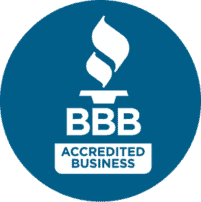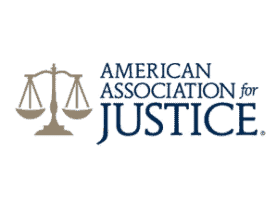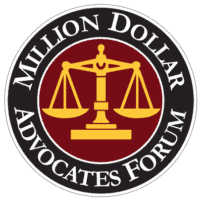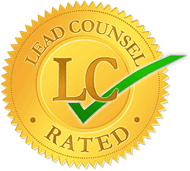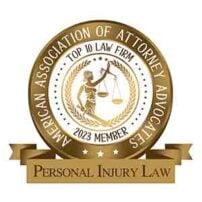Glossary of Car Insurance Definitions & Terms
For many people, one of the most confusing aspects of car insurance is the language in which it’s written. If you’re not familiar with certain terms and meanings, then your policy might sound like a different language. Below, we breakdown some of the most common terms that you are likely to hear when discussing the terms of your insurance policy. If you have any questions regarding compensation after an accident, complete the contact form at the bottom of this page for a free consultation with a car accident lawyer at our firm.
- Bodily Injury (BI) Liability: BI liability refers to coverage that will help with injuries that were suffered as a result of the car accident; in some cases, it will also cover the expense of a funeral. In New York, minimum legal liability is $25,000 per person / $50,000 per accident, which doubles in cases of death. If you are involved in an accident in which two people are injured and you have the minimum policy amount, then your insurance will cover no more than $50,000 for the cost of both individuals’ injuries. If it goes over $50,000 combined, you will be held liable for the rest.
- Comprehensive Coverage and Collision Coverage: Comprehensive coverage and collision coverage helps cover damage that occurs to your vehicle. Comprehensive coverage refers to damage that resulted from something other than an accident, such as a stolen vehicle. Collision coverage applies to damages that occurred in a crash, usually one in which you were at fault. If you are not at fault, you can still fall back on collision coverage to help you get your car fixed immediately without waiting on the other insurance company. Both types of coverage, however, only pay for the actual cash value of the vehicle, which is the purchase price minus any depreciation.
- Deductible: A deductible is an amount that you must pay before the insurance company will pay for a claim. For example, the standard deductible for collision coverage in New York is $200, which means that if you’re at fault for an accident, you would need to pay $200 before the insurance kicks in and covers the rest. The deductible, however, can have a large range; just keep in mind that the lower the deductible, the higher the premium, and vice versa.
- No-Fault Law: Passed in 1974 as the New York Comprehensive Automobile Insurance Act, “The No-Fault Law” allows for parties injured in a motor vehicle accident to recover just compensation. This only refers to personal injuries, not property damage, and is limited by §5108. An individual who is injured in a car accident can recover compensation that will cover basic economic losses up to $50,000 per person. This covers everything from medical costs to lost income, to “reasonable expenses,” that do not exceed $25 per day for 3 calendar years.
- Insurance Identification Card: When you purchase insurance, your company will issue you two original NYS Insurance Identification Cards. One of these will need to be presented to the DMV when you apply for vehicle registration; this must be within 45 days of the effective date of the coverage. The DMV will keep one of these cards, and the other must be kept in the vehicle at all times so it can be presented as proof of insurance if a law enforcement officer ever requests to see it.
- Out-of-State Insurance Coverage: Per the NYS DMV, out-of-state car insurance is not valid in New York. Accordingly, if you move to another state but keep your car registered in the state of New York you cannot purchase insurance in your new state and hope that it will cover your New York vehicle. If it is registered in New York, it needs New York insurance. If you purchase out-of-state insurance to replace your current insurance, it will be classified as a lapse in insurance, which can result in the NYSDMV suspending your registration and, potentially, your license. If you move out-of-state and register your vehicle there you should immediately surrender your New York license plates by mailing them directly to the NYS DMV.
- Personal Injury Protection (PIP): PIP falls under no-fault law and is there to help you cover expenses if you are ever involved in an accident. Under PIP, which is required in the state of New York, you can have coverage for medical bills up to $50,000; household expenses up to $25 per day for 3 years; 80% of lost income up to $2,000 per month for 3 years; and $2,000 in death benefits. PIP helps cover the expenses of the accident regardless of who was at fault; however, some circumstances would render it null and void. For example, driving drunk, causing an accident through intentional actions, committing a felony, illegally racing, or driving a stolen vehicle.
- Insurance Premium: This is one of the foundational terms used when discussing car accidents; an insurance premium is how much you will pay periodically for your coverage. Payments can be made monthly, bi-annually, or they can be broken down another way. How much you pay will be determined by several different factors, such as the scope of your coverage, your driving history, the make and model of your vehicle, and the cost of your deductible.
- Property Damage (PD) Liability: PD liability helps cover expenses when you cause an accident that results in property damage. PD Liability can be applied to cases in which you totaled another person’s car, you wrapped your car around a light pole, you damaged a fence, or something else. It pays for any type of inanimate object that was damaged by your actions. In New York, the minimum PD liability limit is $10,000.
- Supplemental Spousal Liability: In you are at-fault for an accident injured your spouse who was riding in the vehicle as a passenger, it is very unlikely that your spouse will be covered under the terms of your insurance plan. For this reason, you may choose to purchase supplemental spousal liability, which would help to cover your spouse if he or she is caused to suffer.
- Uninsured / Underinsured Motorist Coverage (UM/UIM): One of the most harrowing of situations involving car accidents is when you are involved in a car crash with someone who does not have the proper amount of car insurance. This could mean someone who does not have any (uninsured), or someone who doesn’t have enough to cover the damage of the accident (underinsured). This is where UM/UIM coverage would kick in, which is required if you have at least $25,000 per person or $50,000 per accident. It, however, typically only covers accidents that occur within New York.
Car Insurance Coverage Requirements In New York
In New York, if you have a vehicle registered then you must have liability insurance. Beyond that, certain minimums must be met. The minimum insurance coverage allowed is the following:
- $25,000 per person
- $50,000 per death
- $10,000 for property damage
If you were involved in a fatal car accident, your car insurance would bump up to $50,000 per person and $100,000 per accident. The state of New York requires all vehicles that are registered to have insurance coverage, even if they are not currently being used. It is also important to note that the liability coverage must be issued in the name of the person who registered the vehicle and it must remain in that name at all times. If that name changes and is different from the person who registered, it will be considered a lapse in coverage.
“I was involved in a car accident—can you help?”
At The Law Office of Richard M. Kenny, our New York City car accident lawyer knows that it can be a confusing time following a car accident, and we are committed to helping you overcome it. With an intimate knowledge of New York laws, we can help explain what your car insurance means and how it could affect your case. We can also look over your situation to determine your legal options. If you would like to discuss your case with a New York City car accident lawyer, we encourage you to pick up the phone and contact us as soon as possible. You can give us a call toll-free at (212) 421-0300 to take advantage of our free consultation, or you can fill out our online case evaluation form if you would like to send us a message directly. Either way, we look forward to hearing from you.



